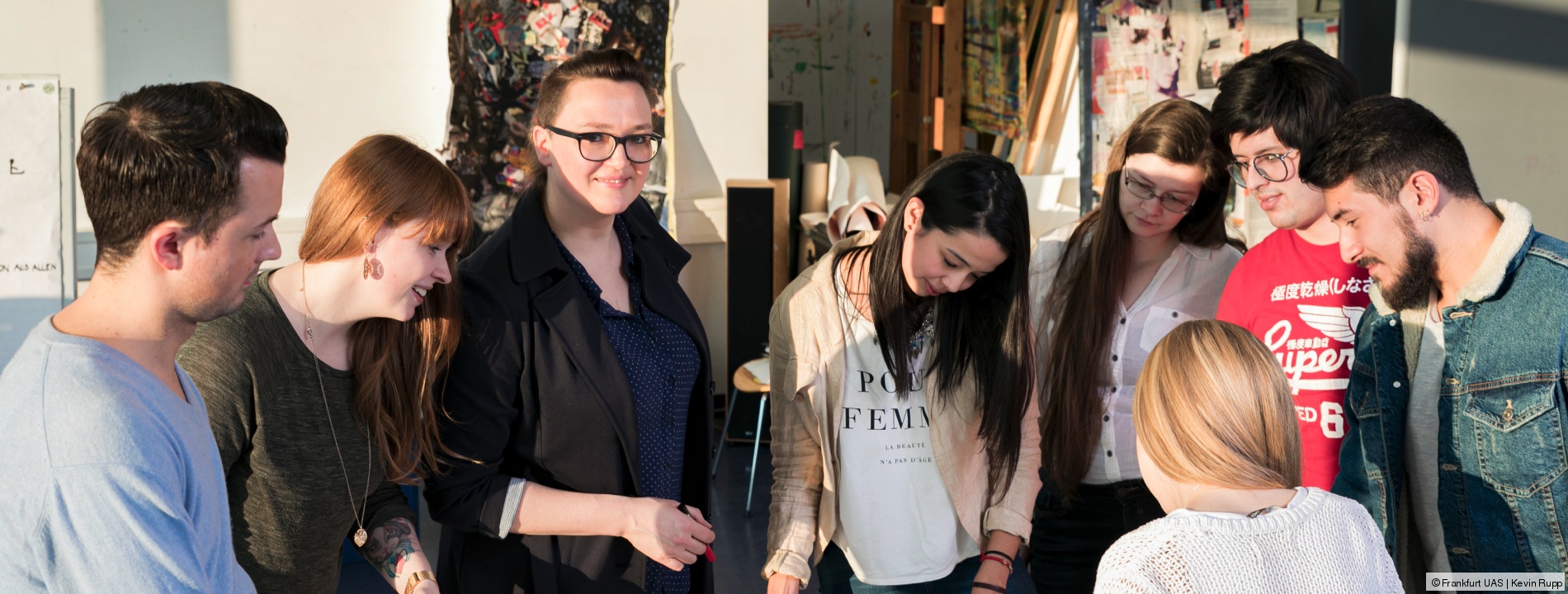With more than 3,500 students, Faculty 4 is one of the largest Social Work faculties in Germany. It covers the entire spectrum of Social Work issues ranging from Bachelor’s and Master’s degree programs through to doctoral studies, jointly with the cross-university Doctoral Center Social Work. The study portfolio includes diversity, inclusion, migration, addiction, poverty, sustainability as well as culture and media in social work. This is what makes the Health and Social Work degree program in Frankfurt unique.
The faculty stands out for its high research intensity, with 10 research institutes, a large number of researchers and its embeddedness within research-oriented teaching practices. The faculty profile will be further expanded over the next few years: new degree programs such as clinical nursing and science-based midwifery are being established with new learning facilities such as high-tech skills labs. Vocational pedagogy for health professions is being further established.
Social sustainability has always played a key role among teaching staff and students. This is reflected in numerous modules of our study programs. In the coming years, we will expand our focus to include other aspects of sustainability. To serve that purpose, a task force has been set up and a dedicated professorship is being established.
Restructuring plans are underway for the Health Faculty. For example, the faculty is currently developing a clinical care study program in accordance with the new regulatory framework. Furthermore, the faculty is establishing professional pedagogy for health professions and midwifery education as a new subject area.
The faculty welcomes and supports the introduced measures and discourses to embed sustainability aspects in the University operation and teaching. A task force is dedicated to promoting this important topic internally.
Currently, the faculty offers 5 undergraduate Bachelor’s degree programs and 8 Master’s degree programs, as well as two continuing education Master’s degree programs. In total, the faculty has 23 Bachelor’s modules and 8 Master’s modules in which the topic of sustainability is addressed either peripherally or as a core topic.
Sustainability Focal Points
- Elementary pedagogy, out-of-school education for children and juveniles, leisure time education, experiential education, social policy developments, models and core values with a view to politically defined framework conditions for Social Work; significance of social policy standards for general framework/working conditions in Social Work
- Sense of acknowledgment and belonging; learning to express oneself freely, experience of limitation with xenophobic attitudes and group-focused enmity in real and virtual space, tailor-made and sustainable solution patterns in crisis situations through pertinent decision-making procedures, consequences of trauma as social and not (only) psychological/individual phenomenon
- Prevention-oriented education/upbringing services, intervention in challenging life situations of children, adolescents and families, diagnostics and intervention in response to illnesses, disabilities and/or life crisis situations
- Global issues and vulnerable populations in postmodern, post-colonial contexts such children, women, older persons, persons with disabilities, migrants, persons identifying as homosexuals, in political contexts, our own positionalities and decolonial methods of practice
- Social disparities and discrimination, biographical-analytical and ethnographic research approaches, psychosocial situations and care systems, equality and antidiscrimination law, methodological and personal/professional reflection on communication experience/interview situation, justice, intersectionality, inclusion and exclusion, allocation of resources, recognition and participation opportunities
- New technologies for the design of care processes, care process management, forms of intra- and interprofessional cooperation, nursing and health-related care (including innovative health promotion and prevention services, regional and integrated care concepts, digitization, ambient assisted living, robotics), national and international structures and qualifications in nursing and healthcare (including e-health concepts, telenursing, public health nursing, advanced nursing practice)
- Concepts of case/system management and of health impairment or health hazards case/system management, individual cross-system care processes, interprofessional care case management, alignment of empowerment and living environment orientation in the care process; introduction of decision-making/problem-solving processes, cross-sector, cross-organizational and cross-professional problems of healthcare, managed care, disease management programs
- Critical examination of diversity, diversity-sensitive awareness, inclusive structures in fields of social work practice, tapping the potential of a heterogeneous society, counteracting exclusion, embedding diversity sensitivity as a cross-cutting issue in institutions and organizations, inclusion-promoting organizational development tools; participation, resource orientation; organizational development; inclusive design – digital health and case management, relationships between people, ambient spaces and technical systems, dismantling barriers, conception and production of user friendliness, usability in the development of new technologies

